When and How to Stop Breastfeeding a Baby
- When Is the Good Time to Stop Breastfeeding?
- Why Mothers Quit Breastfeeding
- How to Stop Breastfeeding a Baby
- How to Stop Breastfeeding at Night
- How Long Can an Infant Take to Stop Breastfeeding?
- What If Your Baby Still Demands Breast Milk?
- Things to Keep in Mind When Stopping Breastfeeding Baby
- What Happens When You Stop Nursing
- FAQs
When you become a mother, you start breastfeeding your baby. Everyone tells you the importance of breastmilk for your baby and for your health as well. However, no one tells you when to wean off your baby or stop breastfeeding your baby. Well, there are no second thoughts that breast milk is one of the most essential sources of nutrition for your little one as it helps strengthen their immune system, but there comes a time when the transition needs to be made from breast milk to other sources of nutrition because once your baby turns six months of age, your milk will not be enough to provide your baby with all the vital nutrients that may be required for your baby’s optimum growth (1). So, does that mean that you should begin weaning off at this stage, or should you keep feeding your baby as long as he is comfortable? Do not strain yourself as this article will provide you with all the necessary information on when to stop breastfeeding your baby.
When Is the Good Time to Stop Breastfeeding?
Breastfeeding your baby strengthens the bond between the two of you. Apart from bonding with your baby intently, breast milk is also a solitary source of nutrition for your baby, which keeps him going. So, before you decide to wean him off you must know when is the right age for that. Breast milk is the main source of nutrition until six months of age or until you start giving solids to your baby. However, you should not only let your baby be on external sources of nutrition and wean off from the breast because breast milk may still be the prime nutrition source for your baby.
The American Academy of Pediatrics and the CDC suggest breastfeeding exclusively for the first 6 months of life and continuing breastfeeding for at least one year (2). Beyond that, it depends on the mother and the baby to continue or discontinue breastfeeding (3). So, when to stop breastfeeding? When your baby turns one, you can consider weaning. But not always; weaning your baby also depends on how ready you and your baby are to give up breastfeeding. Your baby may show signs like taking interest in what you are eating, start making gestures to give them food, being able to hold their head and sit without support, and more (4).
Why Mothers Quit Breastfeeding
Breastfeeding is a blessing for your baby; however, you may have to discontinue this practice because of the following reasons (5):
1. Inadequate Milk Production
You may consider weaning your baby if you are not producing ample milk for your little one. Improper latching position, too, may lead to inadequate milk supply. Therefore, you should pay heed to your baby’s latching position and ensure that your baby latches on to the areola or the dark part of your breast. If he does not and you are unable to produce milk, then you may wean your baby.
2. Discontented Baby
Sometimes, you may produce milk, but it may not suffice your baby’s milk demands. This may leave the baby discontented and irritable.
3. No Interest in Breast Milk
This may happen when you introduce solid foods or formula milk to your baby. Your baby may like the taste of other foods so much so that he may not take breast milk at all.

4. Increased Nutritional Requirements
As your baby grows, breast milk may not fulfil his increased nutritional demands, and thus you may have to make the transition to solid foods.
5. Mother’s Health Condition
Sometimes, due to the mother’s ill health, she may not be able to breastfeed her baby and thus sometimes may be required to wean off abruptly. Sometimes, due to certain prescribed medications, you may be required to stop breastfeeding your baby.
6. Resuming Work
If you are a working mommy, then you may be required to resume work after your maternity break is over. This may either reduce the frequency of your feeds, or you may wean off completely.
7. Too Much to Handle
Some mothers may not be able to succumb to the demands of their baby’s breastfeeding requirements due to emotional, social or physical reasons. Thus, such mothers may stop feeding their babies.

8. Baby Bites
Sometimes, more than suckling on your breasts, your baby may be more interested in chewing your nipples. This is very normal, especially when your baby starts teething, thinking that your nipples are a chew toy. This may lead to cuts, bruises and sore nipples, causing extreme pain and, in some cases, infection, which may make you stop breastfeeding your baby.
How to Stop Breastfeeding a Baby
In order to stop breastfeeding your baby, you can use some of the following methods to stop breastfeeding:
1. Get Formula Milk to the Rescue
If you wish to wean off your baby, you need to look out for alternate methods of satiating your baby’s hunger. Formula milk is the second choice, closest to breast milk. You should make the gradual transition by replacing one feed and then gradually replacing the subsequent feeds. Formula milk is heavier than breast milk and thus may keep your baby feeling fuller for longer. Introduce solid foods to your baby if your baby is over six months of age.
2. Distract With Activity
Sometimes a baby may not suckle on your breast because of hunger, he may just need closeness or comfort from you. However, when you try to wean, refrain from offering your breast for comfort. Try and distract your baby and indulge him in some activity that he may enjoy doing.

3. Get Your Baby’s Focus on Solid Foods
Your baby will be ready for solid food by six months of age, and this readiness becomes prominent as he grows. Therefore, whenever the hunger pang strikes, try feeding some solid food to your baby. Start with gooey, soft and smooth textured food, which may be milk-based, as it may make the transition process faster and easier.
4. First Choice – Formula or Solid Food
If your baby seems hungry, do not offer breast milk. Rather, go for either formula milk or any solid food. Your baby may act a bit grumpy for the first few times, but when you keep giving him these options, he will associate them with his hunger and may shift his focus from breast milk to these options.
5. Give Pacifier
Babies are born with an innate sucking instinct, and it may take them a bit of effort to let go of that instinct. Therefore, not because of hunger but just to satiate this instinct babies may sometimes opt for suckling. However, if you are in the process of weaning off, you can use a pacifier instead.
If you have been on the lookout for how to stop breastfeeding naturally, we suggest that you try some of our above-mentioned tips to stop breastfeeding.
How to Stop Breastfeeding at Night
When you try to wean your baby, you might experience more challenges during the night weaning sessions. In most cases, a woman’s body is capable of producing more milk during the night time or early mornings. Therefore, in order to facilitate your baby’s transition from breast milk to other food options, you can offer a high-calorie diet to your baby during the daytime so that your baby feels full towards his sleep time. Also, you may concentrate on offering breastfeeds in the afternoons or early evenings only, that is, somewhere from 1 PM to 7 PM.
How Long Can an Infant Take to Stop Breastfeeding?
Although it depends from baby to baby, on an average a baby may take weeks to even a couple of months to wean off completely. It may also depend on how consistent you may have been with your efforts and how effectively your baby copes up with the weaning process.
What If Your Baby Still Demands Breast Milk?
While some babies may happily shift from breast milk to other food options, on the other hand, some babies may still cling to their mommies and demand to be breastfed. This may be a tricky situation for you and sometimes may become troublesome. However, you may make use of any of the following tips to deal with the situation:
1. Try Changing the Food or Formula Options
Just the way you may relish or despise some food items, your baby is bound to do the same, too; this may be because of your baby’s taste preference. It is quite possible that the solid food options or formula milk that you may be giving your baby may be the reason for these aversions. We recommend that you try changing the options and see if that helps.
2. Change Your Approach
Changing your approach may help too, this means that if you offered formula milk or solid food for lunch to your baby, you might offer it as a dinner option the following day. Experiment and try different combinations and see which one your baby accepts and settles with. Gradually shorten your nursing sessions, and avoid giving nursing cues to your baby, like uncovering your breasts in front of them or pulling them onto your lap (3).
3. Seek Your Partner’s Help
Sometimes, you may struggle to feed your baby solids, but if someone else does it, there is a chance that he will accept it. This is because your baby may associate you with someone who breastfeeds, and thus, he may be reluctant to take any other form of food from you. Though the transition will happen, it may be a good idea for someone else to begin it.

4. Make a Routine
Sounds strange, but babies like to follow a routine. This is because anything that is not usual or abrupt may create aversion or a feeling of discomfort in babies. If you set a routine, i.e., if you feed your baby at a set time every day, this may give your baby an idea of what he may expect during that time, and slowly, he may accept the change.
Things to Keep in Mind When Stopping Breastfeeding Baby
Here are some tips and tricks to keep in mind when you stop breastfeeding a baby:
- Look for baby’s readiness: Watch for signs that your baby is ready to be weaned. Some babies naturally reduce their breastfeeding time as they develop taste buds for new tastes and food textures other than breastmilk. This is a cue to wean your baby.
- Add new foods: When your baby turns six months old, you can gradually start adding new foods to their diet to build their taste buds and complement breast milk.
- Take your time: Remember, weaning is not a one-day process but gradual. Your baby needs time to adjust to new foods and textures.
- Choose the right time: Time plays a crucial role when weaning infants off breastfeeding. Pick a time when you and your little one are emotionally prepared. There’s no need to rush things.
- Look for allergies: Before introducing new foods to your baby, make sure to rule out allergies. Common allergen foods include milk because of lactose, eggs, peanuts, fish, and shellfish.
- Avoid comparison: Every baby is unique, and so is their journey. Some babies are ready to explore new foods by the time they are 6 or 7 years old, while some take their sweet time and wean slowly.
What Happens When You Stop Nursing
It is not only your baby who may experience difficulty when you begin weaning off, but you may also experience a few changes. Here’s what may happen to you:
- Once you start weaning off your baby, the hormones in your body start changing, too. The levels of oxytocin and prolactin may drop substantially, leading to hormonal imbalance. This hormonal imbalance may cause symptoms of depression and excessive mood swings, too.
- Your breasts may become tender or sore to touch; this may happen due to milk accumulation in the breasts. In some cases, breast engorgement may occur, which may be an extremely painful condition. For this reason, it is suggested that weaning off should be a gradual and not a sudden process.
- If you did not have periods while breastfeeding, then worry not because soon you will have your menstrual cycle again (6). Many breastfeeding mothers may not have their periods until they stop breastfeeding their babies. This condition is called temporary infertility or lactational amenorrhea. Therefore, you may begin menstruating soon after you wean off your baby.
- Most women tend to put on weight after they stop breastfeeding their baby. This may happen because of extra calorie intake that happens during the breastfeeding days and which may not go down the moment they wean off their baby. However, this may be controlled with strong willpower, but still, it may take a few days or few weeks time to cut down on the calories.
A mother always knows what is best for her baby, and thus, it is very important to listen to your instincts when it comes to weaning off your little bundle of joy.
FAQs
Most women may have tons of questions related to weaning. If you are one of those, too, we have few of your frequently asked questions answered in this section.
1. Can I resume breastfeeding after weaning?
Seeing your baby struggling with the discomfort of weaning off may make you feel bad. You may wonder whether you did the right thing or if you could have waited for some more time and nurtured the sweet, intimate bond with your baby. It is very normal for both mommy and baby to experience the withdrawal symptoms. However, if you wish to resume breastfeeding, you may do so, and it is called re-lactation. But it may be effective only if it is started soon after the weaning. Also, it may be easier for you to get your milk supply going if your baby is less than six months of age. In the case of babies older than a year, it may take a lot of effort on your part. In most cases, your milk supply may not be the same as before. We recommend that you should plan to stop breastfeeding your baby when you are physically and mentally prepared to do it only.
2. When will my breast milk dry up after quitting breastfeeding?
Your milk supply may diminish considerably within a few days after weaning. However, it may take weeks, and sometimes even a year or two, for your breast milk to completely dry up. Even when you stop nursing your baby, you may notice occasional drops of milk oozing from your nipples. However, if you experience any kind of secretions a few years after stopping, which may be accompanied by pain or any other symptoms, it surely may be a cause of concern. Get yourself thoroughly checked for the same.
3. What are the common allergy-causing foods for babies?
Fish, milk, wheat, egg, peanuts, and soy are some common causes of food allergies in babies and children (7).
Babies grow really fast, and soon, you may have to think about other ways of meeting your baby’s nutritional needs and weaning him off breast milk. We have made efforts to bring you some of the best possible options that may help you do this tedious task with ease. Happy weaning!
References/Resources:
1. Biesbroek. G, et al.; The impact of breastfeeding on nasopharyngeal microbial communities in infants; Am J Respir Crit Care Med.; PubMed; https://pubmed.ncbi.nlm.nih.gov/24921688/; August 2014
2. Breastfeeding; CDC; https://www.cdc.gov/nutrition/infantandtoddlernutrition/breastfeeding/recommendations-benefits.html
3. Weaning Your Baby; American Academy of Pediatrics; https://www.healthychildren.org/English/ages-stages/baby/breastfeeding/Pages/Weaning-Your-Baby.aspx
4. Breastfeeding – deciding when to stop; BetterHealth Channel; https://www.betterhealth.vic.gov.au/health/healthyliving/breastfeeding-deciding-when-to-stop
5. How to stop breastfeeding; NHS; https://www.nhs.uk/conditions/baby/breastfeeding-and-bottle-feeding/breastfeeding/how-to-stop/
6. When Should You Stop Breastfeeding?; Nationwide Children’s; https://www.nationwidechildrens.org/family-resources-education/family-resources-library/when-should-you-stop-breastfeeding
7. Food Allergies in Children; John Hopkins Medicine; https://www.hopkinsmedicine.org/health/conditions-and-diseases/food-allergies-in-children
Also Read:
Tips to Night Weaning a Baby
Ways to Stop Breast Milk Production
Side Effects of Stopping Breastfeeding on Mother and Baby
Was This Article Helpful?
Parenting is a huge responsibility, for you as a caregiver, but also for us as a parenting content platform. We understand that and take our responsibility of creating credible content seriously. FirstCry Parenting articles are written and published only after extensive research using factually sound references to deliver quality content that is accurate, validated by experts, and completely reliable. To understand how we go about creating content that is credible, read our editorial policy here.









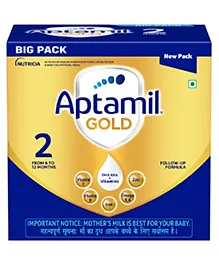
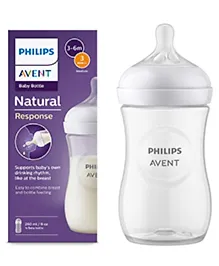

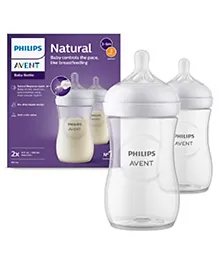
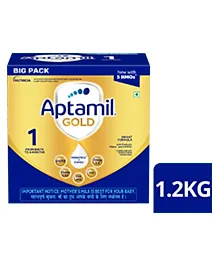
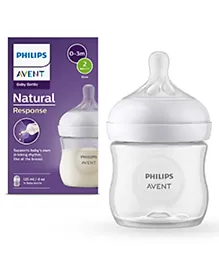
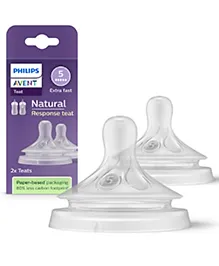



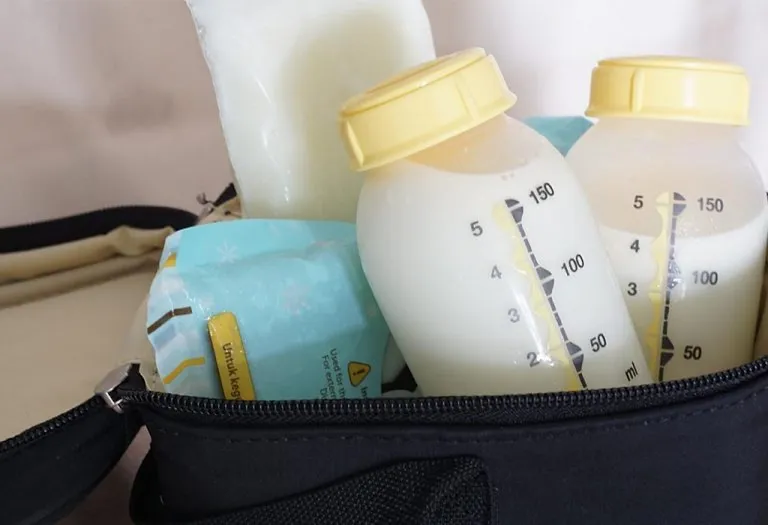




.svg)


















